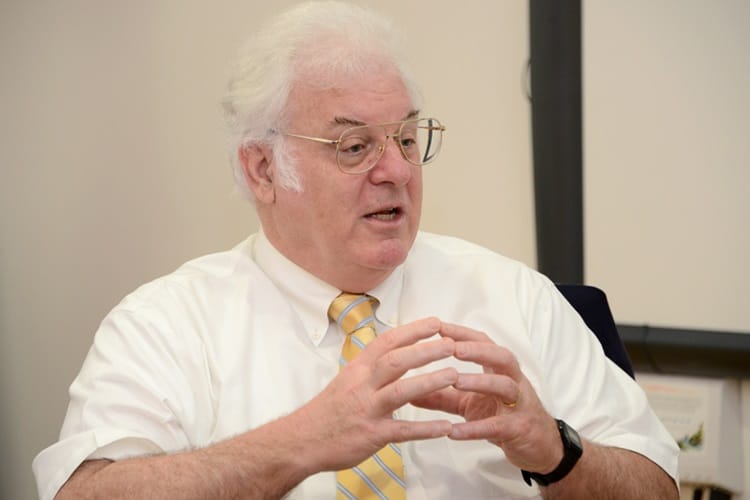Unmasking a Legend: The Story of Robert B. Laughlin

Robert B. Laughlin is an American physicist. He was awarded the Nobel Prize in Physics in 1998.
Life and Career
Robert B. Laughlin was born on November 1, 1950, in Visalia, California, USA. He grew up with an interest in science and mathematics from a young age, which eventually led him to a successful career in physics. His life has been dedicated to scientific research and the advancement of our understanding of the physical world.
Laughlin pursued his higher education, starting with a Bachelor of Science in Physics from the University of California, Berkeley in 1972. He continued his academic journey by earning a Ph.D. in physics from the Massachusetts Institute of Technology (MIT) in 1979. His doctoral research focused on the theory of the fractional quantum Hall effect, a field that would later earn him the Nobel Prize in Physics.
In the early 1980s, Laughlin made a groundbreaking contribution to the understanding of the fractional quantum Hall effect. He proposed a theory that explained the unusual behavior of electrons in two-dimensional systems subjected to strong magnetic fields. This work earned him the Nobel Prize in Physics in 1998, which he shared with Horst Störmer and Daniel Tsui.
In addition to his work on the fractional quantum Hall effect, Laughlin made significant contributions to the study of high-temperature superconductivity, which is an important area of condensed matter physics.
Throughout his career, Laughlin held various academic positions. He was a faculty member at Stanford University and later served as the Anne T. and Robert M. Bass Professor of Physics and Applied Physics. He also worked as a researcher and professor at various other institutions.
Laughlin is the author of several influential scientific papers and books, including “The Theory of Everything,” where he explores the fundamental principles of physics.
Award and Legacy
Robert B. Laughlin was awarded the Nobel Prize in Physics in 1998 for his pioneering work on the fractional quantum Hall effect. This prestigious recognition was shared jointly with Horst Störmer and Daniel Tsui. Their collective discoveries fundamentally changed our understanding of quantum physics, particularly in the realm of condensed matter physics. The groundbreaking theory developed by Laughlin provided significant insights into the behavior of electrons in strong magnetic fields, a contribution that has had a profound impact on the field of physics.
Laughlin’s work significantly advanced our understanding of quantum physics, particularly in the behavior of electrons in low-dimensional systems and under strong magnetic fields.
His groundbreaking theory on the fractional quantum Hall effect continues to be a cornerstone in the study of condensed matter physics. It laid the foundation for further research and has been integral in the exploration of quantum phenomena.
His scientific papers, research, and publications have continued to influence and inspire generations of physicists, researchers, and students interested in condensed matter physics and related fields.
As an educator and academic, Laughlin shared his knowledge and insights with students, contributing to the education and mentorship of future physicists, thus furthering his legacy through the minds he influenced.
Observer Voice is the one stop site for National, International news, Sports, Editor’s Choice, Art/culture contents, Quotes and much more. We also cover historical contents. Historical contents includes World History, Indian History, and what happened today. The website also covers Entertainment across the India and World.
Follow Us on Twitter, Instagram, Facebook, & LinkedIn

